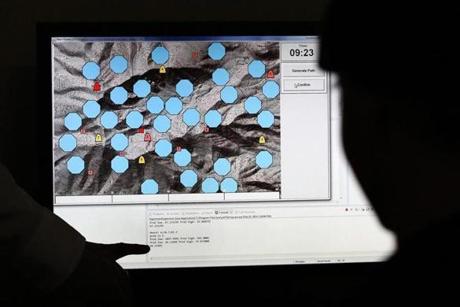Tufts professors Robert Jacob and Sergio Fantini are developing an fNIRS based headband to read brain activity, enabling a computer to determine whether the wearer is bored, fatigued, or sharp. They recently tested the method in an air traffic control simulation.
With functional near infrared spectroscopy, a row of lights embedded in the headband beams light waves through the skull and onto the prefrontal cortex of the brain. A computer connected to the headband can gauge the person’s level of mental exertion by measuring the amount of light absorbed by the brain.
ApplySci questions the safety of continuous infrared spectroscopy, and looks forward to less invasive methods of monitoring focus in air traffic controllers, pilots, and other attention-critical roles.
